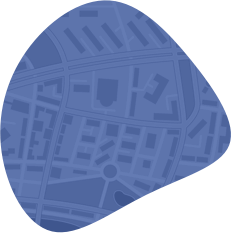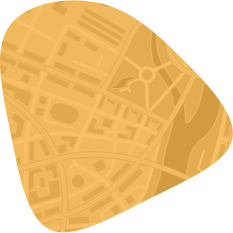Pain Management for Degenerative Conditions
NYC doctors who can help you reclaim your life with pain relief
Degenerative conditions like arthritis and osteoarthritis can cause chronic, ongoing pain that affects your daily life and limits your mobility. These conditions develop over time as cartilage and joints wear down, often leading to stiffness, discomfort, and inflammation. While there’s no cure for degenerative conditions, managing the pain and slowing down the progression is possible with the right treatment plan. At IMC Bone Doc, we provide customized pain management solutions designed to help you live a more comfortable, active life despite these challenges.
What are degenerative conditions?
Degenerative conditions refer to long-term diseases where tissues, bones, or joints slowly break down over time. Common ones include:
- Arthritis: Arthritis is the inflammation of joints, causing pain, swelling, and stiffness. There are several types of arthritis, but osteoarthritis (caused by wear and tear of the cartilage) and rheumatoid arthritis (an autoimmune disease) are the most common.
- Osteoarthritis: As a specific form of arthritis, osteoarthritis occurs when the protective cartilage that cushions the ends of your bones wears down over time, leading to pain and restricted movement, especially in weight-bearing joints like the knees, hips, and spine.
- Degenerative disc disease: This condition occurs when the discs in the spine wear down or deteriorate over time, leading to chronic back or neck pain, nerve compression, and decreased mobility. It often affects the lower back and can cause radiating pain in the legs or arms, depending on the location of the affected discs.
These conditions worsen gradually, making early intervention and ongoing pain management essential to maintaining mobility and comfort.
Pain management tips for degenerative conditions
Managing the pain associated with degenerative conditions requires a multifaceted approach tailored to each person’s needs. Treatment plans are designed to reduce inflammation, alleviate discomfort, and improve joint function to help patients maintain mobility and quality of life.
Medications play a significant role in pain management. Over-the-counter pain relievers like ibuprofen or acetaminophen are often recommended for mild pain, while stronger prescription medications such as nonsteroidal anti-inflammatory drugs (NSAIDs) or corticosteroids can provide more effective relief and reduce inflammation. For conditions like rheumatoid arthritis, disease-modifying anti-rheumatic drugs (DMARDs) may be prescribed to slow the disease’s progression and further ease symptoms.
Physical therapy is another crucial element in managing degenerative conditions. Customized exercise programs help patients stay mobile, strengthen muscles around affected joints, and reduce stiffness. These targeted exercises not only address current pain but also play a preventive role in minimizing future discomfort and keeping joints functioning properly over time.
For more advanced cases, injections can offer significant relief. Corticosteroid injections, administered directly into the joint, help reduce inflammation and provide pain relief that can last for weeks or even months. Additionally, hyaluronic acid injections are used for osteoarthritis, acting as a lubricant within the joint to improve mobility and reduce pain.
Lifestyle modifications are essential for long-term pain management. Small changes in daily routines can make a big difference in managing discomfort. Weight management, for instance, can reduce the pressure on weight-bearing joints, while supportive devices such as braces or canes can ease the strain on affected areas. Making ergonomic adjustments at home or in the workplace can also help prevent further wear and tear on the joints, reducing pain in the long run.
Non-surgical pain management options
For many patients, surgery is not immediately necessary to manage pain. Non-surgical treatments focus on reducing pain and improving quality of life without the need for invasive procedures.
- Heat and cold therapy: Alternating between heat to relax muscles and cold to reduce inflammation can provide temporary pain relief.
- Acupuncture: Some patients find that acupuncture, which involves inserting thin needles into specific points on the body, helps relieve chronic joint pain.
- Assistive devices: Using devices like canes, braces, or orthotic shoe inserts can help support the joints and reduce pain during everyday activities.
- Surgical options for advanced degenerative conditions: In some cases, when conservative treatments are no longer effective, surgery may be considered to provide long-term pain relief. Common surgical procedures for degenerative conditions include:
- Joint replacement: In severe cases of osteoarthritis, especially in the knees and hips, joint replacement surgery may be the best option to restore mobility and alleviate pain. This procedure involves removing the damaged joint and replacing it with an artificial one.
- Arthroscopy: This minimally invasive surgery is used to diagnose and treat joint problems. In some cases, arthroscopy can help repair damaged cartilage and other tissues affected by osteoarthritis.
Get personalized pain treatment for your unique injury with IMC Bone Doc
At IMC Bone Doc, we specialize in creating tailored pain management plans for patients dealing with degenerative conditions. Our approach focuses on helping you manage your pain and improve your quality of life, whether you need medication, physical therapy, injections, or advanced treatment options. With the right care, you can live more comfortably and keep doing the activities you enjoy. Contact us today to learn more about how we can help you manage the pain from degenerative conditions. We have seven office locations conveniently located through NYC and Long Island.






















